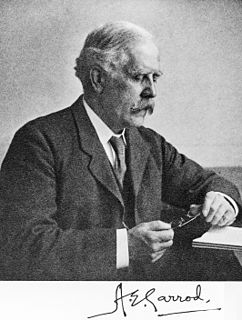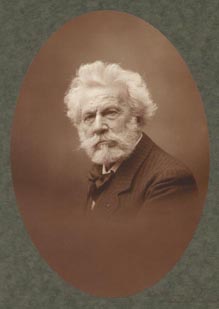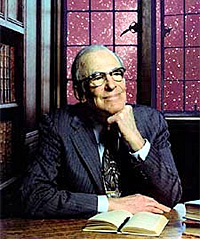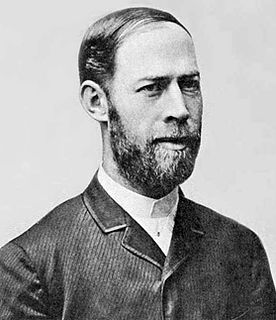Top 86 Telescopes Quotes & Sayings - Page 2
Explore popular Telescopes quotes.
Last updated on April 16, 2025.
In our Mechanics' Fair, there must be not only bridges, ploughs, carpenter's planes, and baking troughs, but also some few finer instruments,--rain-gauges, thermometers, and telescopes; and in society, besides farmers, sailors, and weavers, there must be a few persons of purer fire kept specially as gauges and meters of character; persons of a fine, detecting instinct, who note the smallest accumulations of wit and feeling in the bystander.
We only recently figured out the origin of our own moon. And we have some idea of how the Sun and Earth formed, but that's only because modern telescopes empower us to see other stars and planets freshly hatched within gas clouds across the galaxy. As for the origin of life itself, the transition from inanimate molecules to what any of us would call life remains one of the great frontiers of biology.
He was a physicist, more precisely an astrophysicist, diligent and eager but without illusions: the Truth lay beyond, inaccessible to our telescopes, accessible to the initiates. This was a long road which he was traveling with effort, wonderment, and profound joy. Physics was prose: elegant gymnastics for the mind, mirror of Creation, the key to man's dominion over the planet; but what is the stature of Creation, of man and the planet? His road was long and he had barely started up it, but I was his disciple: did I want to follow him?
Science is not, as so many seem to think, something apart, which has to do with telescopes, retorts, and test-tubes, and especially with nasty smells, but it is a way of searching out by observation, trial and classification; whether the phenomena investigated be the outcome of human activities, or of the more direct workings of nature's laws. Its methods admit of nothing untidy or slip-shod; its keynote is accuracy and its goal is truth.
If you are serious about your religion, if you really wish to commit yourself to the spiritual quest, you must learn how to use psychochemicals. Drugs are the religion of the twenty-first
century. Pursuing the religious life today without using psychedelic drugs is like studying astronomy with the naked eye because that's how they did it in the first century A.D., and besides
telescopes are unnatural.
If humankind - from humble farmers in the fields and toiling workers in the cities to teachers, people of independent means, those who have reached the pinnacle of fame or fortune, even the most frivolous of society women - if they knew what profound inner pleasure awaits those who gaze at the heavens, then France, nay, the whole of Europe, would be covered with telescopes instead of bayonets, thereby promoting universal happiness and peace.
I never really understood that massive collaboration involving hundreds of people is what makes movies possible, and it's also why I would agree that curiosity is not the most important human trait; the urge to collaborate is. Heck . . . only we have the ability to cooperate to make like online communities and space telescopes and imaginariums and movies. So the great thrill of this whole experience [my novel being made into a movie] for me was . .. .seeing humanity do what it's best at, which ultimately is not competing but cooperating.
The problem here is that a civilization that is 1,000 light years away doesn't know we exist. They don't know that we have radio telescopes here on Earth because they see Earth as it was 1,000 years ago. Nothing can travel faster than light, so however good their instruments they can't see in affect the future. So there is no particular reason they should be sending us messages at this time.
You can put this another way by saying that while in other sciences the instruments you use are things external to yourself (things like microscopes and telescopes), the instrument through which you see God is your whole self. And if a man's self is not kept clean and bright, his glimpse of God will be blurred - like the Moon seen through a dirty telescope. That is why horrible nations have horrible religions: they have been looking at God through a dirty lens.
Psychedelic experience is only a glimpse of genuine mystical insight, but a glimpse which can be matured and deepened by the various ways of meditation in which drugs are no longer necessary or useful. If you get the message, hang up the phone. For psychedelic drugs are simply instruments, like microscopes, telescopes, and telephones. The biologist does not sit with eye permanently glued to the microscope, he goes away and works on what he has seen.
Astronomy may be revolutionized more than any other field of science by observations from above the atmosphere. Study of the planets, the Sun, the stars, and the rarified matter in space should all be profoundly influenced by measurements from balloons, rockets, probes and satellites. ... In a new adventure of discovery no one can foretell what will be found, and it is probably safe to predict that the most important new discovery that will be made with flying telescopes will be quite unexpected and unforeseen.
We know there are billions of stars and planets literally out there, and the universe is getting bigger. We know from our fancy telescopes that just in the last two years more than 20 planets have been identified outside our solar system that seem to be far enough away from their suns - - and dense enough - - that they might be able to support some form of life. So it makes it increasing less likely that we're alone. But if we were visited someday, I wouldn't be surprised.
Through our science we have created magnificent spacecrafts and telescopes to explore the night and the light and the half light. We have made visible things that are invisible to the unaided eye. We have brought the dreamy heavens down to Earth, held them in the mind's eye. Our explorations have produced a vast archive of remarkable astronomical images... The riches are too many for choices, the revelations beautiful and dreadful. Who can look at these images and not be transformed? The heavens declare God's glory.
We live inside our universe and cannot get a bird's-eye view of it from outside. And we cannot even see all of our universe. Distant parts of it are expanding away from us so fast that they are invisible; they go faster than the speed of light. Having bigger telescopes to see fainter stars will not help us here: invisible is truly invisible.
With increasing distance, our knowledge fades, and fades rapidly. Eventually, we reach the dim boundary-the utmost limits of our telescopes. There, we measure shadows, and we search among ghostly errors of measurement for landmarks that are scarcely more substantial. The search will continue. Not until the empirical resources are exhausted, need we pass on to the dreamy realms of speculation.
Sometimes I really regret that I did not live in those times when there was still so much that was new; to be sure enough much is yet unknown, but I do not think that it will be possible to discover anything easily nowadays that would lead us to revise our entire outlook as radically as was possible in the days when telescopes and microscopes were still new.
If there is no solace in the fruits of our research, there is at least some consolation in the research itself. Men and women are not content to comfort themselves with tales of gods and giants, or to confine their thoughts to the daily affairs of life; they also build telescopes and satellites and accelerators and sit at their desks for endless hours working out the meaning of the data they gather.
This is where the story starts, in this threadbare room. The walls are exploding. The windows have turned into telescopes. Moon and stars are magnified in this room. The sun hangs over the mantelpiece. I stretch out my hand and reach the corners of the world. The world is bundled up in this room. Beyond the door, where the river is, where the roads are, we shall be. We can take the world with us when we go and sling the sun under your arm. Hurry now, it's getting late. I don't know if this is a happy ending but here we are let loose in open fields.
When we look at the universe, what we see by eye or with our telescopes is only five percent of the universe. The rest, 95 percent is dark. Dark meaning, first of all, not visible to our instrument. Second, dark also indicates our ignorance. We don't know what's the composition of this part of the universe.
What intelligent being, what being capable of responding emotionally to a beautiful sight, can look at the jagged, silvery lunar crescent trembling in the azure sky, even through the weakest of telescopes, and not be struck by it in an intensely pleasurable way, not feel cut off from everyday life here on Earth and transported toward that first step on celestial journeys?
Were the succession of stars endless, then the background of the sky would present us an uniform luminosity, like that displayed by the Galaxy-since there could be absolutely no point, in all that background, at which would not exist a star. The only mode, therefore, in which, under such a state of affairs, we could comprehend the voids which our telescopes find in innumerable directions, would be by supposing the distance of the invisible background so immense that no ray from it has yet been able to reach us at all.
In all these products, whether iron bridges, locomotives, automobiles, telescopes, cottages, airport-hangars, funicular railways, skyscrapers, or children's toys, the will towards a new style expresses itself. The similarity of these examples to the new creations in art consists in the same striving for clear, pure form which expresses truth in the objects.























